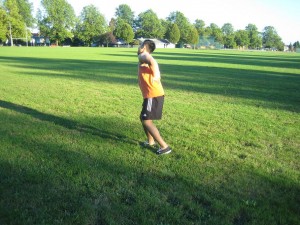Atopic dermatitis or eczema is an inflamed condition of the skin that causes severe itchiness. Children are more susceptible than adults. Eczema can occur along with other conditions such as allergic rhinitis, asthma, conjunctivitis and others. This condition can be resolved in childhood or when the child becomes older, but inflammatory susceptibility still persists. The skin lesion of the eczema still remains in any part of the body usually in the arms and behind the knees
Causes
- Having a family history of eczema or atopic dermatitis
- Anxiety, stress and frustration which make the symptoms of eczema severe but are not responsible for it.
- Living in areas with very cold temperatures
- Suffering from dry skin which is susceptible to develop eczema or atopic dermatitis
- Allergies to pollen, dust and mites are more susceptible to develop atopic dermatitis or eczema.
Symptoms

- Infantile atopic dermatitis starts after 3 months of age along with severe itching, redness of the skin, swelling of the face especially the cheeks, scalp and lower back leg and sometimes the trunk and the hands can also be affected.
- Infantile atopic dermatitis can heal after the age of 18 months but sometimes it becomes prolonged and reaches the childhood phase.
- Itchiness with a raised lesion that develops behind the knee and the area of the elbows and also at the wrist and ankles. The external part of the ear can be affected with discharges and bleeding coming from the ear. Sometimes, there are blisters that ooze.
Treatment
- Prevent the baby from scratching the affected area of the skin in order to prevent making the condition worse, cause infections and the skin becoming irritated, thick and leathery.
- Trim the nails of the baby regularly. Another way is putting “scratch mittens” on the hands of the baby with sock tucked in under a long-sleeve shirt in order to prevent the baby from scratching the affected area.
- Bathe the baby at least 10 minutes using warm water. Avoid using hot water though. Use mild, unscented body soap and laundry soap and avoid using perfumed, deodorant and anti-bacterial soap that can be harsh on the sensitive skin of the baby.
- Use soap on the areas that are only dirty such as the genitals, feet and hands. Simply rinse off the rest of the body.
- Pat the skin dry and avoid rubbing the body.
- While the skin of baby is still wet, apply moisturizers.
- Dress the baby in loose clothing made of cotton in order to help minimize irritation on the skin.
- Use fragrance-free detergent in washing the clothes of the baby. Wash new clothes before putting them on the baby.
- Avoid putting plenty of blankets on the baby or overdressing the baby in order to prevent getting hot and sweaty which triggers atopic dermatitis.
